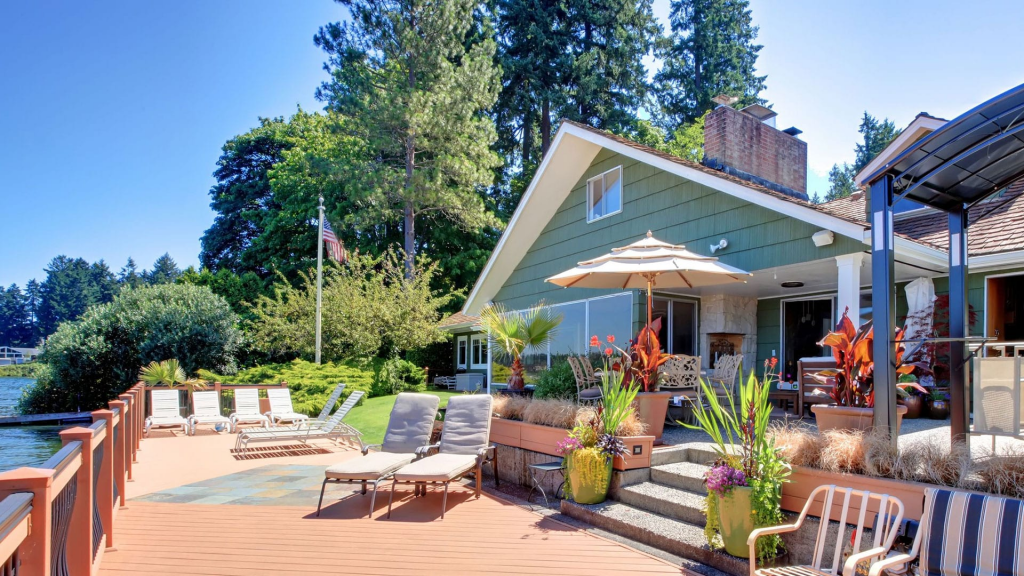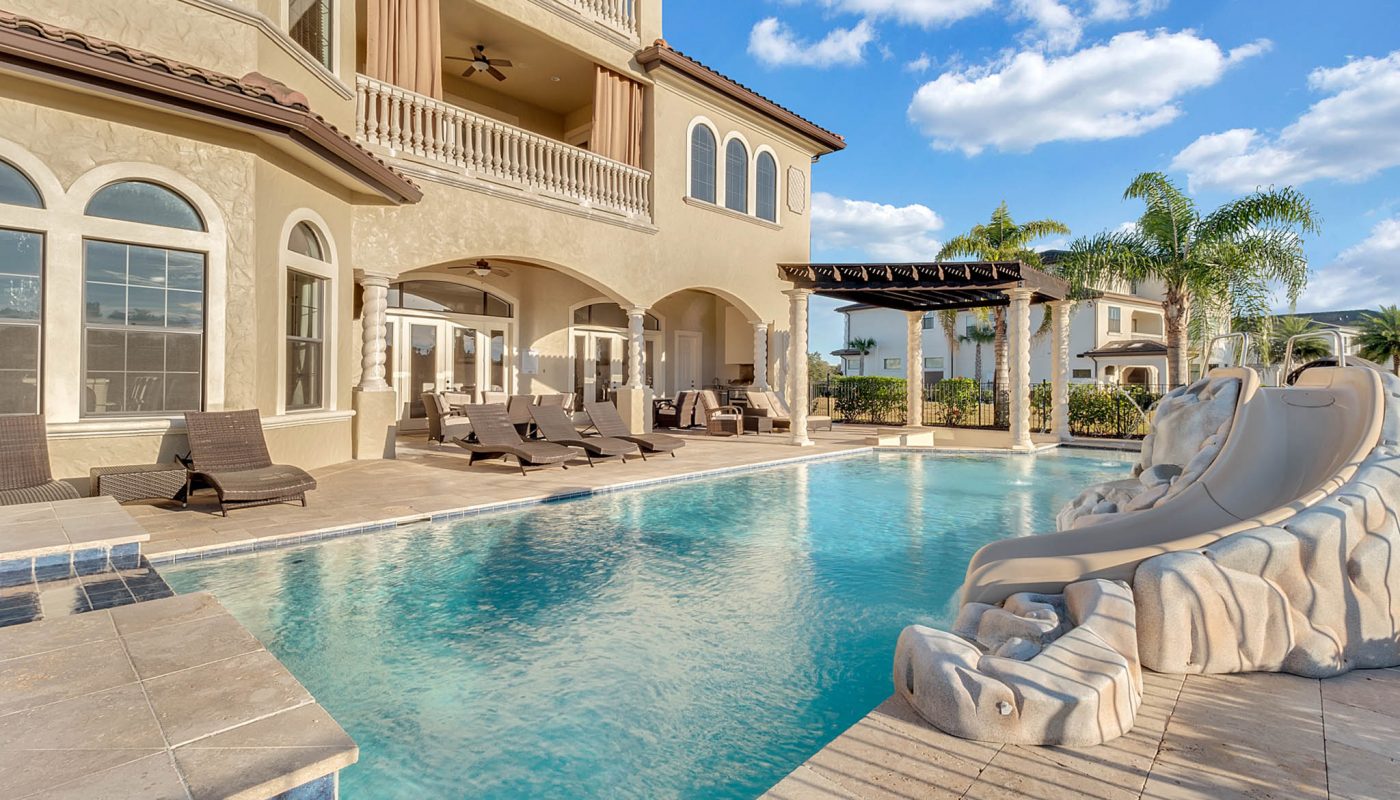Buying your dream vacation home is an exciting goal that can provide a sanctuary for relaxation and a smart financial investment. Many people envision a getaway property where they can unwind and create lasting memories with family and friends. This purchase represents more than just an additional real estate asset; it is an opportunity to secure a future retreat and even generate rental income when you are not using it. Dream vacation homes often have a unique charm that sets them apart from primary residences.
In many cases, these properties offer modern amenities and high-quality infrastructure that contribute to an upscale living experience. The planning and purchase process for a vacation home differ from buying your primary residence. It requires careful evaluation of location, budget, maintenance, and long-term use. You must consider your overall financial strategy and determine if the property will meet your lifestyle and investment goals. Many buyers choose a vacation home to enjoy annual escapes, while others see it as a solid long-term investment that appreciates over time. In addition, when you buy a vacation home, you are creating a retreat that can double as a rental property for additional income. Moreover, balancing the emotional appeal of a dream home with sound financial planning is essential.
You need to think about financing options, tax implications, and property management before making a decision. It is also helpful to visit multiple locations and compare market conditions. Research plays a vital role as you gather data on current market trends, property values, and future growth potential. Consider using online tools, speaking with local experts, and consulting financial advisors. Every step in the process is interconnected, and a well-planned strategy can lead to both personal enjoyment and financial gain.
Financial Planning and Budgeting for Your Vacation Home Purchase

Financial planning is a critical step when you decide to buy your dream vacation home. It is essential to set a realistic budget that covers both the purchase price and ongoing costs. Start by reviewing your financial situation carefully. Determine your available savings and assess how much debt you can comfortably manage. Use a detailed budget plan to track your income, expenses, and potential savings.
These costs include property taxes, insurance, maintenance, utilities, and potential homeowners association (HOA) fees. It is necessary to add these expenses to your monthly budget so that you are not surprised by extra financial burdens. Also, think about possible renovation costs that may be required to maintain the property. You must determine if you will use the home as a personal retreat, a rental property, or both. And if you plan to rent the property, then consider the costs associated with property management and marketing.
Establish a savings buffer to cover unexpected expenses or emergencies. Furthermore, evaluate your financing options by considering how much you can afford to borrow. In many cases, vacation homes require larger down payments compared to primary residences. Check your credit score and determine if you can get a favorable mortgage rate. Lenders often have specific criteria for second homes, and it is important to meet these conditions.
Additionally, it is smart to plan for a potential second mortgage if you decide to fund renovations or expand the property later. By taking a disciplined approach and including all possible expenses in your budget, you ensure that your vacation home investment is both enjoyable and sustainable over the long term. Finally, always remember to review and adjust your financial plan as you move closer to the purchase, ensuring that your spending aligns with your future income projections and personal objectives.
Location Selection and Market Research for Your Dream Vacation Home
Choosing the right location is one of the most important parts of buying your dream vacation home. The location determines your lifestyle, potential rental income, and property appreciation. A planned research process is necessary to ensure that the area meets your expectations and long-term goals. Start by identifying regions that offer a balance of natural beauty and convenient access. Consider coastal areas, mountain retreats, or lakeside communities. Each location has its own unique charm and benefits.
Pay attention to community services, amenities, and infrastructure. It is wise to explore local attractions, such as restaurants, parks, and cultural centers, as these features enhance the quality of life and increase property desirability. Moreover, research local real estate market trends. Look at past and current property values, and assess the potential for future appreciation. Local economic conditions, such as job growth and tourism trends, influence property demand. A vibrant economy in a vacation destination often leads to better rental opportunities.
They can provide firsthand information on market conditions and future developments that might affect property values. It is also important to consider the seasonal fluctuations in the area. Some vacation homes in popular destinations may have strong rental seasons while being quiet at other times. Understanding this pattern can help you plan for income stability if you intend to rent the property. Additionally, research the overall safety, environmental quality, and planning of the community.
By combining thorough market research with personal visits and expert advice, you can choose a location that not only fulfills your dream of a vacation retreat but also serves as a solid long-term investment. The right location creates a strong foundation for enjoying the lifestyle benefits while ensuring your property retains its value over time.
Financing Options and Mortgage Considerations for Vacation Homes
Financing a vacation home involves different considerations compared to a primary residence. Lenders often treat vacation homes differently because they are considered non-primary residences. This can mean higher interest rates and larger down payment requirements. Before you start the mortgage process, get your credit score checked and your financial history in order. A strong credit history is crucial to secure competitive rates. It is important to compare various lenders and mortgage products to get the best terms available. Research traditional mortgages as well as specialized loans for vacation properties. Some lenders offer tailored packages for second homes.
Use online mortgage calculators to estimate what your monthly payments might be and account for all costs, including taxes and insurance. Also, consider the impact of making a larger down payment. Lenders typically require 20 percent or more down for a vacation home, and this extra cash can lower your loan-to-value ratio. A lower ratio may help you avoid private mortgage insurance, which adds to your monthly expense. In addition, evaluate if a fixed-rate or adjustable-rate mortgage fits your situation best.
Understand that refinancing a vacation home later on is possible, so select financing options that provide flexibility. Consult with financial professionals who understand both primary and secondary home loans. They can advise you on the best course of action and help you navigate the lending landscape. Additionally, check for prepayment penalties on your existing loan, which can affect your decisions if you plan to refinance or pay off the loan early. Overall, careful evaluation of your financing options is essential when buying a vacation home. This ensures you get a mortgage that fits your budget and your future plans while minimizing the cost of borrowing.
Legal, Tax, and Insurance Considerations When Buying a Vacation Home
Legal, tax, and insurance factors are key aspects to consider when buying your dream vacation home. First, you must understand the legal process of property purchase in the intended location. This involves adhering to local zoning laws, planning regulations, and obtaining any special permits required for vacation properties. It is highly recommended to work with a real estate attorney who has experience in the area. This legal guidance will help you navigate title searches, contracts, and closing procedures, ensuring there are no liens or legal issues with the property. Furthermore, tax considerations play a crucial role in your overall expenses and long-term investment.
Tax deductions on mortgage interest and property taxes might be available for vacation homes, but these benefits can vary depending on your usage of the property. In some cases, if you rent out the vacation home for part of the year, you might be able to deduct expenses related to rental income. Consult with a tax professional to understand how the purchase will affect your annual returns and what deductions you might be eligible for.
These policies may have different rates and coverage limits compared to those for primary residences. It is important to compare insurance quotes to ensure you receive adequate protection at a reasonable rate. Additionally, consider if your location increases risk factors such as flood or hurricane damage; extra coverage might be necessary in such areas. Legal agreements, such as homeowner association rules, and any covenants or restrictions on the property should also be reviewed in detail. These could affect your use of the property and your ability to rent it out if that is part of your plan.
Lifestyle, Community, and Rental Potential in Vacation Homes
A vacation home offers more than just a retreat; it can significantly enhance your lifestyle. When you buy your dream vacation home, you secure a space where you can relax, entertain, and enjoy a new quality of life. The community in a vacation area often includes like-minded individuals who value leisure and recreation. These communities frequently offer local amenities such as golf courses, beaches, hiking trails, and marinas that contribute to a vibrant lifestyle.
This can foster strong social networks and enhance your overall satisfaction with the property. Beyond personal enjoyment, vacation homes can serve as a source of income if you choose to rent them out during periods when you are not using them. The rental potential of such properties is often high due to their desirable locations and established tourist appeal. Renting your property can help offset annual maintenance costs, property taxes, and mortgage payments. It is important to analyze local vacation rental markets and consult with real estate professionals to understand occupancy rates and rental income expectations in your target area.
However, this will depend on local tax laws and how the property is used. Balancing personal use with rental opportunities requires careful planning and management. You must decide whether you want the property solely as a private retreat or also as an investment. Regardless of your choice, buying a vacation home offers the chance to enjoy a better lifestyle while potentially earning rental income. The process of finding a property in a vibrant community with strong amenities can be deeply satisfying. You can engage in local events, make new friends, and enjoy a sense of pride in your property.
Property Management and Maintenance for Vacation Homes
When you invest in a vacation home, proper property management and ongoing maintenance are critical to preserving your dream investment. Unlike primary residences, vacation homes may remain unoccupied for significant periods, which demands extra care to prevent deterioration. Managing the property from a distance requires establishing a reliable local property management team. These professionals can handle routine tasks such as housekeeping, landscaping, repairs, and general upkeep.
Moreover, thorough property management helps prevent issues that could deter future renters or reduce the resale value of your home. It is important to research and interview local management companies to find one with a solid reputation and a proven track record. These professionals can provide estimates for routine maintenance and identify potential repairs before they become costly. In addition to external management, consider investing in technology solutions that allow remote monitoring of your property.
This monitoring can include cameras, automated thermostats, and water leak sensors, among others. Furthermore, ensure that you have adequate insurance coverage that accounts for the unique challenges of a vacation home. Sometimes, the property is at risk of damage due to weather, vandalism, or other external factors when it is unoccupied. Your insurance policy should reflect these risks and provide sufficient coverage. Finally, develop a long-term maintenance schedule that aligns with the seasons and your usage patterns. For example, if your vacation home is in a region with harsh winters, plan for special maintenance tasks to protect your property during those months. Regular property management, thoughtful maintenance, and the use of modern technologies combine to keep your vacation home in excellent condition. This approach not only preserves the asset’s value but also ensures that it is ready for use whenever you or your guests decide to visit.
Lifestyle Enhancements and Long-Term Investment Value

Owning your dream vacation home offers many lifestyle enhancements as well as long-term investment value. A vacation home is more than just an asset; it is a lifestyle choice that provides both relaxation and social opportunities. When you purchase a vacation home, you create a personal retreat that is separate from your primary residence. This space can serve as a peaceful escape from the everyday stresses of work and urban life. Many vacation properties are located in scenic areas that offer diverse recreational activities such as water sports, hiking, skiing, or golfing.
Long-term, a vacation home also represents an investment that can appreciate in value. Planned communities or popular tourist destinations tend to experience steady appreciation. This means that over time, your property could generate a strong return on your investment. In many cases, vacation homes also offer rental opportunities. If you choose to rent out your home when you are not using it, you can generate supplementary income. This rental income can cover maintenance costs, property taxes, and even contribute to mortgage payments.
A well-chosen vacation home aligns with your personal tastes and offers a solid financial foundation. It is important to balance the emotional desire for a dream home with practical investment considerations. Research local market trends, future development plans, and economic conditions to ensure that your property will continue to hold value over time. Consulting with real estate professionals and financial advisors can help you assess whether the property meets both your lifestyle needs and financial goals. With careful planning and a focus on both personal enjoyment and long-term investment, a vacation home can provide a rewarding and secure future for years to come.
Tips for a Successful Vacation Home Purchase
Buying your dream vacation home requires careful planning and informed decision-making. There are several key tips that can help you achieve success in this process. First, begin with thorough research on the location. Explore various neighborhoods, visit properties, and compare local amenities. Look into factors such as climate, seasonal variations, and community culture. A comprehensive site visit helps you understand the area and decide if it meets your lifestyle expectations. Second, ensure your financial planning is robust.
It is essential to secure pre-approval for financing to know your borrowing limits and enable quick decision-making when you find the right property. Third, work with experienced professionals. Engage a real estate agent specializing in vacation homes who can provide local market insights and negotiate on your behalf. Consider consulting a mortgage broker, a tax advisor, and a real estate attorney. They can help you navigate unique aspects such as local property laws and tax considerations. Fourth, consider the long-term potential of the property. Analyze whether the home could appreciate in value and whether it offers potential rental income if needed.
Ask for a fair price, and be prepared to walk away if the deal does not meet your financial goals. It is also important to review all contract terms meticulously before signing. Lastly, stay patient and flexible throughout the process. The right property may take time to find, and market conditions can shift. Maintain a clear focus on your long-term goals, and do not rush the decision. By following these essential tips, you can make your dream vacation home a reality while ensuring that it remains a sound financial investment. Each tip builds on the previous one and collectively guides you towards a well-informed, rewarding purchase that enhances both your lifestyle and your investment portfolio.
Conclusion
Buying your dream vacation home is a significant milestone that can transform your lifestyle and enhance your long-term wealth. The process requires careful planning, thorough research, and detailed financial analysis. Begin by understanding the overall benefits and knowing what you want from the property. Focus on creating a realistic budget that covers every aspect of the purchase and maintenance. Consider the importance of location and conduct extensive market research to ensure that the area meets your needs. Evaluate all financing options and understand the different mortgage products available for vacation properties.
Legal, tax, and insurance implications must be reviewed, and professional advice is essential to navigate these complexities. Recognize the unique lifestyle enhancements that a vacation home provides, from relaxation and recreational opportunities to rental income and long-term growth. Also, remember that property management plays a key role in protecting your investment, especially if the home will be unoccupied for parts of the year. Embrace technology to make the process smoother and more efficient. Finally, take actionable steps by creating a list of priorities, working with experienced real estate agents, and seeking pre-approval for financing.
Stay patient, persistent, and prepared as you move through the process step by step. With careful planning, the right resources, and professional guidance, you can successfully purchase the vacation home of your dreams. The investment will not only offer you a personal retreat but also serve as a potential source of long-term wealth. Start today by mapping out your priorities, gathering your financial documents, and researching your preferred locations. Each action you take will bring you one step closer to realizing your dream vacation home. Embrace the journey and enjoy the exciting process that lies ahead.



